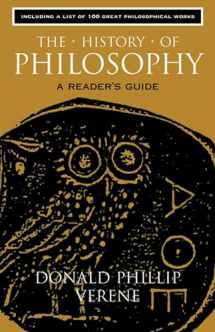
The History of Philosophy: A Reader's Guide
Book details
Summary
Description
With the aim of guiding readers along, in Hegel’s words, “the long process of education towards genuine philosophy,” this introduction emphasizes the importance of striking up a conversation with the past. Only by looking to past masters and their works, it holds, can old memories and prior thought be brought fully to bear on the present. This living past invigorates contemporary practice, enriching today’s study and discoveries.
In this book, groundbreaking philosopher and author Donald Verene addresses two themes: why should one study the historically “great” texts and, if such a study is necessary, how can one undertake it? Acting out against the rejection of the idea that there is a philosophical canon, he centers his argument on the “tetralogy” of Plato, Aristotle, Kant, and Hegel. From his opening look at the rhetorical tradition, he brings those core ideals forward to classical Roman and medieval philosophers and then on into Renaissance and modern philosophy, including contemporary thinkers such as Derrida and Foucault. This vital chronological outline is supplemented by Verene’s contextualizing commentary. In ensuing sections, he offers guidance on reading philosophical works with “intellectual empathy,” suggests 100 essential works to establish a canon, illustrates the role of philosophers in history and society, and examines the nature of history itself. Ultimately, Verene concludes that history may be essential to philosophy, but philosophy is more than just its history.


We would LOVE it if you could help us and other readers by reviewing the book
Book review



